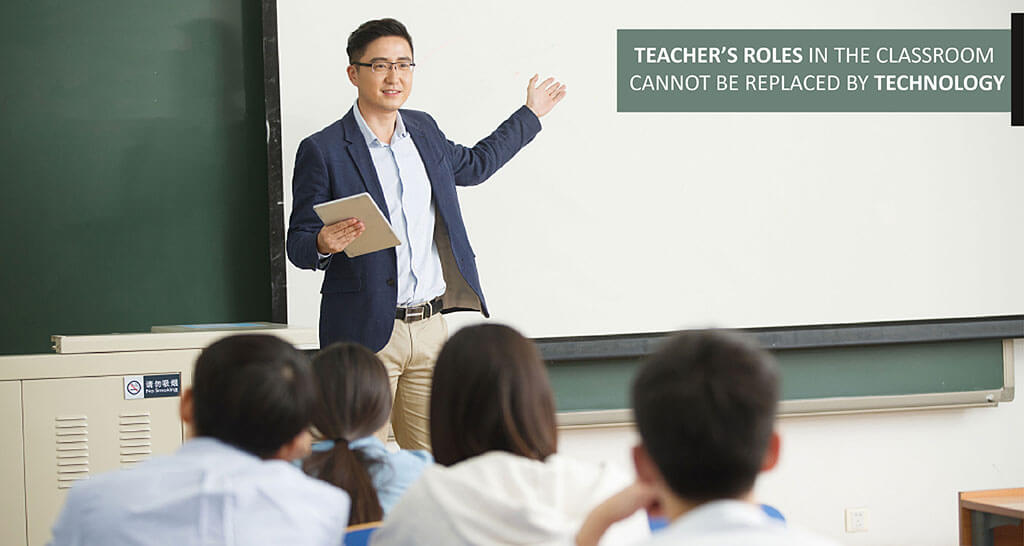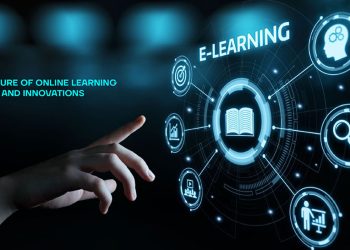As a leader, guide, facilitator, and mentor, a teacher helps a pupil grow and develop. They inspire kids with their successes and serve as examples for future success.
Technology has become the defining feature of a contemporary classroom. The spread of the Coronavirus has increased the emphasis on using technology in the classroom. Teachers and school leaders are continually pressured to incorporate technological tools into their lessons. Although there are many positive outcomes associated with the use of technology in the classroom, the issue of whether or not technology can replace teachers in future classrooms still persists. And the answer to that is, sadly, no. Technologies may help, but they will never replace teachers.
In this day and age, information and communication technologies are essential. Due to this shift, people no longer only needed food, housing, and clothing but now needed access to the internet. With ICT, a person may meet all of their demands. Relationships between people are the focus here. And it reaches everyone from the nation’s urban centres to its most rural corners. We can see internet usage anywhere, from major metropolitan areas to remote rural communities. It serves both an entertaining and a practical purpose in everyday life. Nonetheless, we need to give internet-based learning a lot more serious consideration if we want to improve the standard of education.
No amount of technology, no matter how sophisticated or well-designed can replace the wisdom and experience of a good teacher. Repeated studies have shown that instructors are the driving force for positive transformation in the classroom, more so than any piece of technology. To put it simply, a teacher does not transmit information or knowledge. And imparting knowledge is not just about reciting statistics. As a leader, guide, facilitator, and mentor, a teacher helps a pupil grow and develop. They inspire kids with their successes and serve as examples for future success. Independent thinking and study are encouraged by a skilled educator. They may serve as a motivating factor, encouraging others to aim high. A virtual classroom will never replace the personal connection and trust between teachers and students.
The textbook and lecture approach is obsolete in the modern day. Educators nowadays must be digital savvy and familiar with the newest tools available. Teachers are challenged to incorporate new forms of media into lessons without surrendering control of the classroom to students. For instance, the availability of several school applications and intelligent apps for preschoolers simplifies the educational process. Individualised learning combined with technology is the way of the future in the classroom.
The current youth demographic is quite fond of modern technological advancements. Teachers need to go beyond their comfort zones and try new approaches if they want to connect with their pupils and improve their understanding. And technology will undoubtedly play a significant part in making it happen. Incredibly, technology already offers a great deal of promise to improve today’s educational system. Several students and intelligent preschool apps provide instructors with additional tools for improvisation and enrichment the classroom experience. Teachers, like students, will benefit from the renewed enthusiasm brought on by introducing cutting-edge instructional tools. In other words, the function of the teacher will continue to be crucial even in a classroom where technology plays an important part. There will be a shift away from the conventional, but it will still be significant.
Where do we, as a society, stand on the issue of whether or not classroom instructors should be required to use digital tools? As for a solution, let’s say that it’ll be somewhere in the centre. Teachers are essential to a classroom’s success, but it will soon be the other way around. Both students and instructors benefit significantly from the technological advancements that make studying easier. The role of the educator will shift from imparting knowledge to that of a broker in distributing reliable information from digital resources to the pupils. Educators continue to struggle against the advancement of technology.
Even while technology might be helpful, it is ultimately the educator that makes a difference in a student’s learning experience. As much as technology is altering the educational landscape, it is in no way a substitute for qualified instructors. Excellent educators create an atmosphere in the classroom that inspires and guides their pupils. When people need inspiration, support getting through tough times, or courage to stand out for what they believe in, technology isn’t there to provide it.






